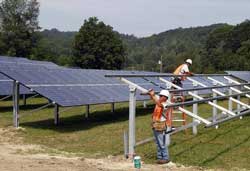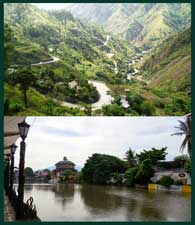PUBLIC URGED TO HELP PROTECT PH WATERS FROM CLIMATE CHANGE IMPACTS

Amid the growing threats and likely impacts of climate change to oceans, the Department of Environment and Natural Resources (DENR) has called on the public to do their part in protecting the country’s waters through active participation in coastal and marine conservation.
The DENR made the appeal as the country marks the 17th year of the Month of the Ocean this May with the theme “Biodiversity for Food and SeaCUREity,” which is a timely reminder how climate change has wreaked havoc on the world’s marine life.
Temperature increase has warmed the ocean floor and caused the death of corals that are vital to marine life and food security.
Environment Secretary Ramon J.P. Paje said the DENR, for its part, has increased efforts to scale up “green” infrastructure, conduct scientific assessment and capacitate communities which are at the forefront of biodiversity conservation.
He said the agency will also embark on a nationwide coral restoration program and improve its reforestation projects, notably the National Greening Program.
“Aside from this, the country has already received considerable foreign assistance in the last five years to scale up protected area management effectiveness,” Paje said.
“This supports the capacity development needs for protected area management, as well as augment the financing of priority activities,” he added.
Just recently, the DENR established the Sustainable Coral Reef Ecosystem Management Program (SCREMP) in Albay province to help combat the alarming effects of climate change to Philippine waters.
The program aims to raise public awareness and social environmental consciousness on the value of coral reefs and associated coastal and marine ecosystems to mitigate the impact of climate change.
SCREMP will promote sustainable management of coastal and marine resources, including biodiversity, through habitat protection, conservation and rehabilitation.
This month, the Philippines also joins the world in celebrating the International Day for Biological Diversity on May 22, with the theme "Mainstreaming Biodiversity: Sustaining People and their Livelihoods."
The event aims to inform the public on the relevance of biological diversity in sustaining people and livelihoods within biodiversity-rich areas. Women’s groups will showcase their biodiversity-friendly enterprises and livelihood and products and services.
The Philippines is one of the world's 17 megabiodiverse countries and is home to 70 to 80 percent of the entire planet’s biodiversity. The more than 7,100 islands in the country harbor some of the richest ecosystems and species in the world.
Scientists have noted that there is a higher concentration of species per unit area in the Philippines than anywhere else in the world.
It has over 6,000 plant species, over 530 bird species, at least 165 mammal species, 235 reptile species, nearly 90 amphibian species, and more than 280 freshwater species of fish. It also has a high percentage of flora and fauna endemism.
Underscoring the importance of national parks and protected areas in the conservation of the country’s rich biodiversity, the DENR pushed for the passage of the Enhanced National Integrated Protected Areas System or ENIPAS in Congress during the past three years.
The ENIPAS will set the boundaries of protected areas and their classification as national parks consistent with the concept of ecosystem-based adaptation, one of the ways the Philippines could comply with the Paris climate accord and achieve the country’s Intended Nationally Determined Contributions.
Pending approval of ENIPAS, Paje said the DENR, through the BMB, has already prioritized site-scale conservation and management, and delineated all protected areas under the existing NIPAS law.
As a party to the Paris Agreement, Paje said the Philippines not only committed to reduce its carbon emissions by 2030, but also pledged to adopt measures to empower communities, enhance systems to reduce disaster risks and improve natural ecosystems resilience.
The Month of the Ocean is celebrated by virtue of Presidential Proclamation No. 57 series of 1999 and the International Day for Biological Diversity was proclaimed by the United Nations General Assembly on December 2000.
- Details
- Parent Category: News & Events
- Category: Press Releases





